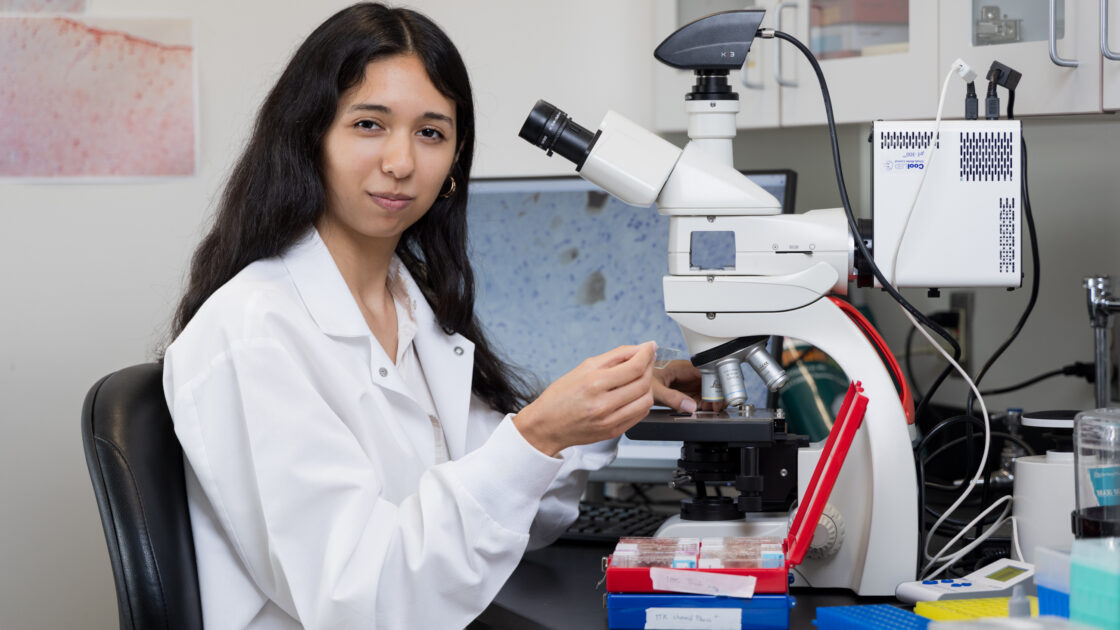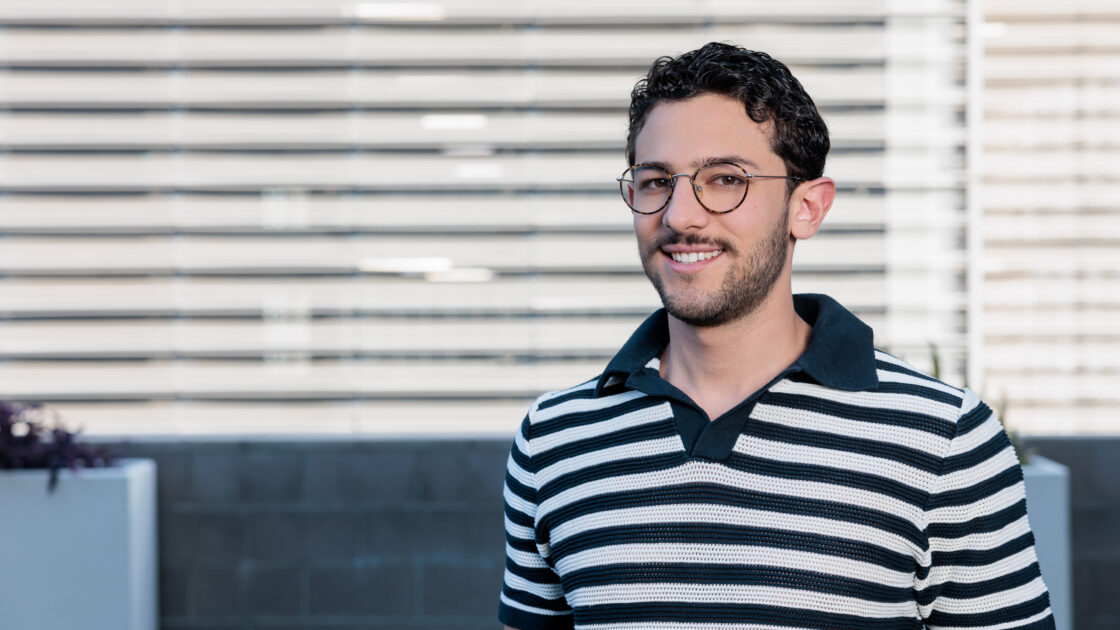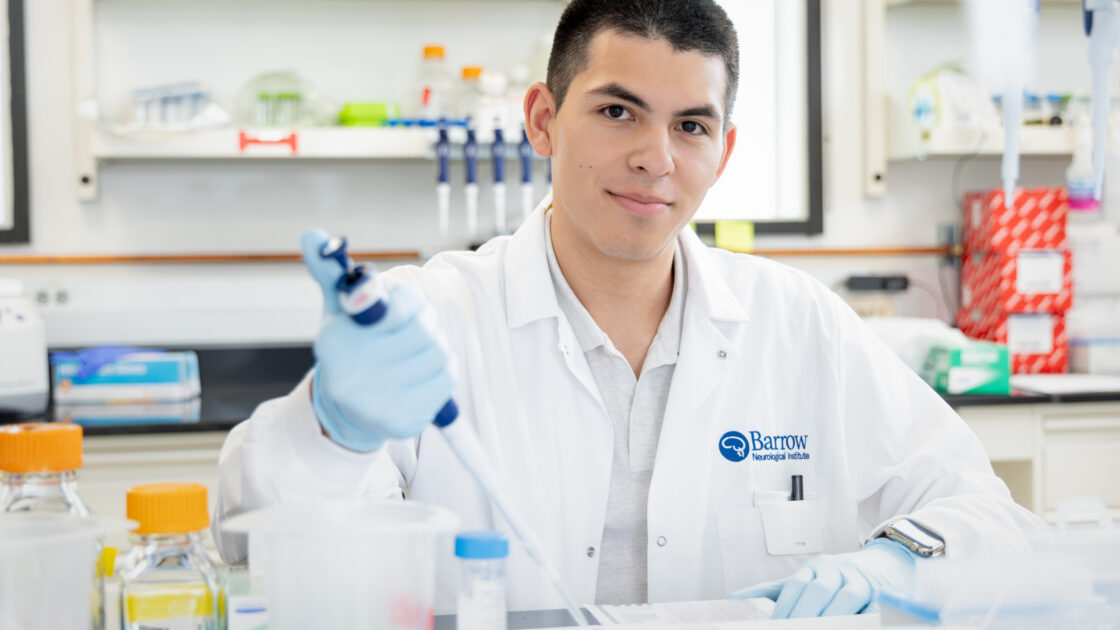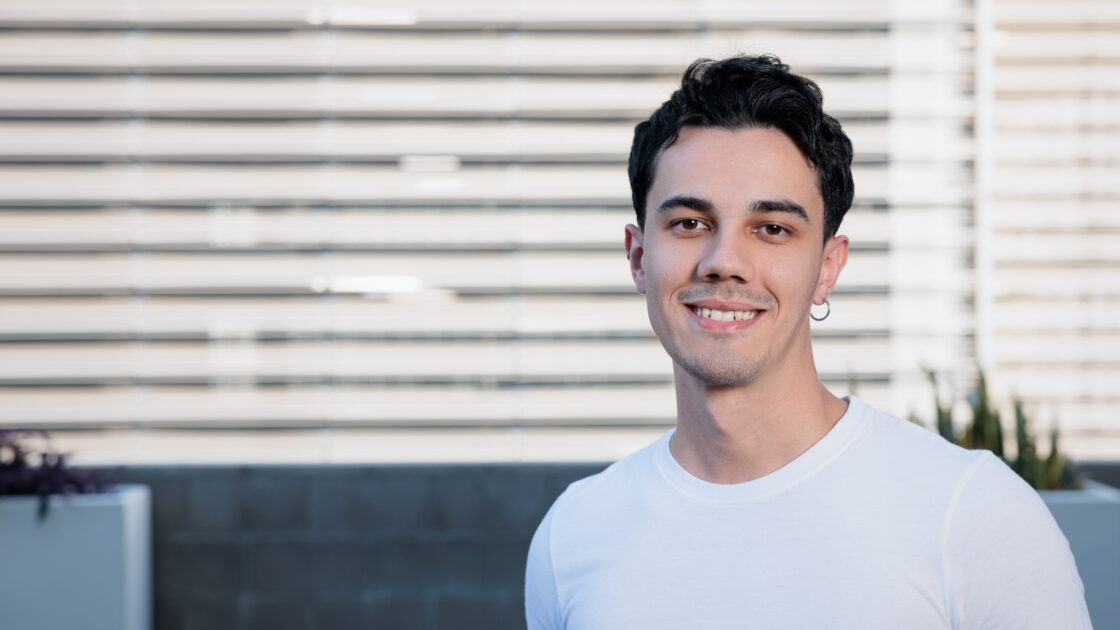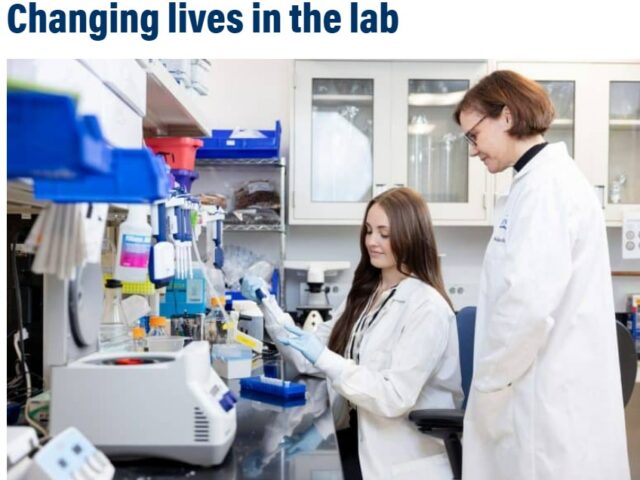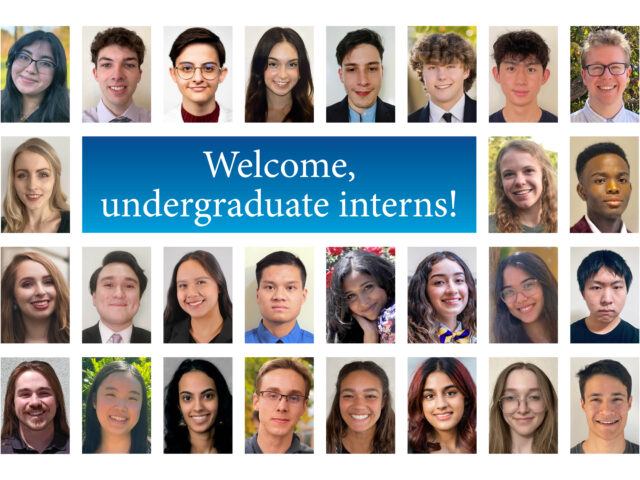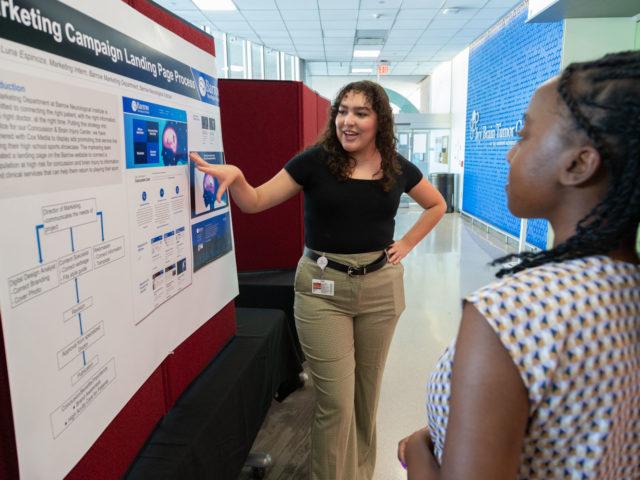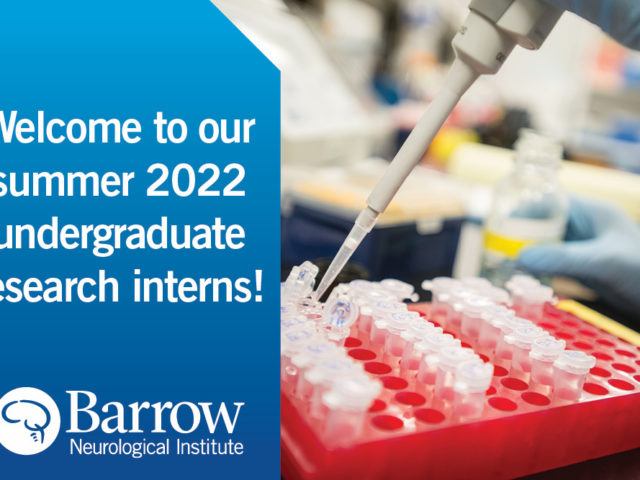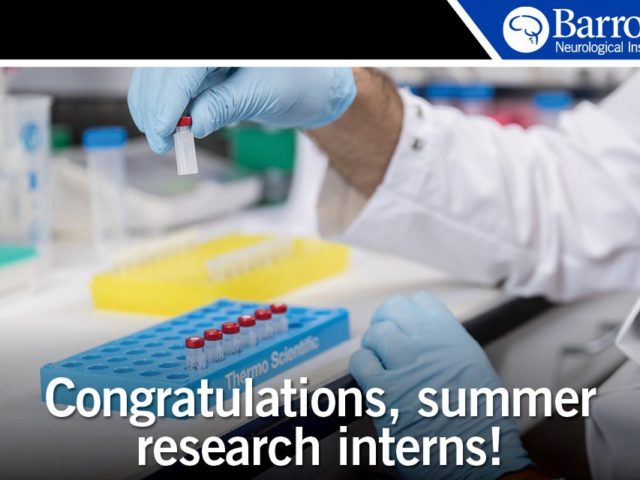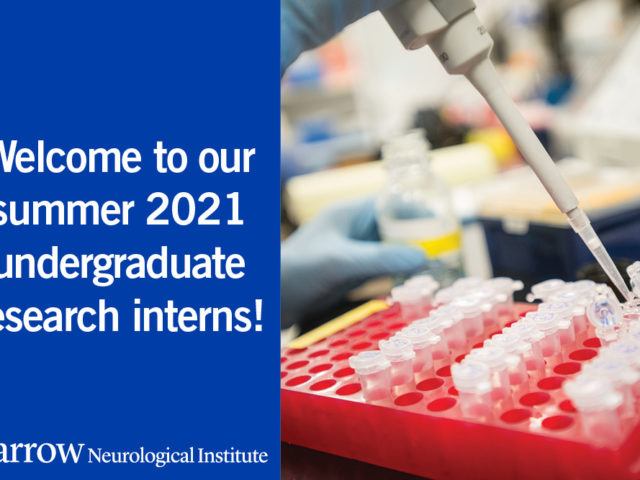
Summer Undergraduate Internship Program
About Our Program
The summer undergraduate program at Barrow Neurological Institute is a paid, 10 week internship program offered to undergraduate students from all colleges and universities, nationally and internationally. Students in the program work full time in a research laboratory under the mentorship of a Barrow scientist, actively participating in groundbreaking neuroscience research using the most advanced technologies and equipment.
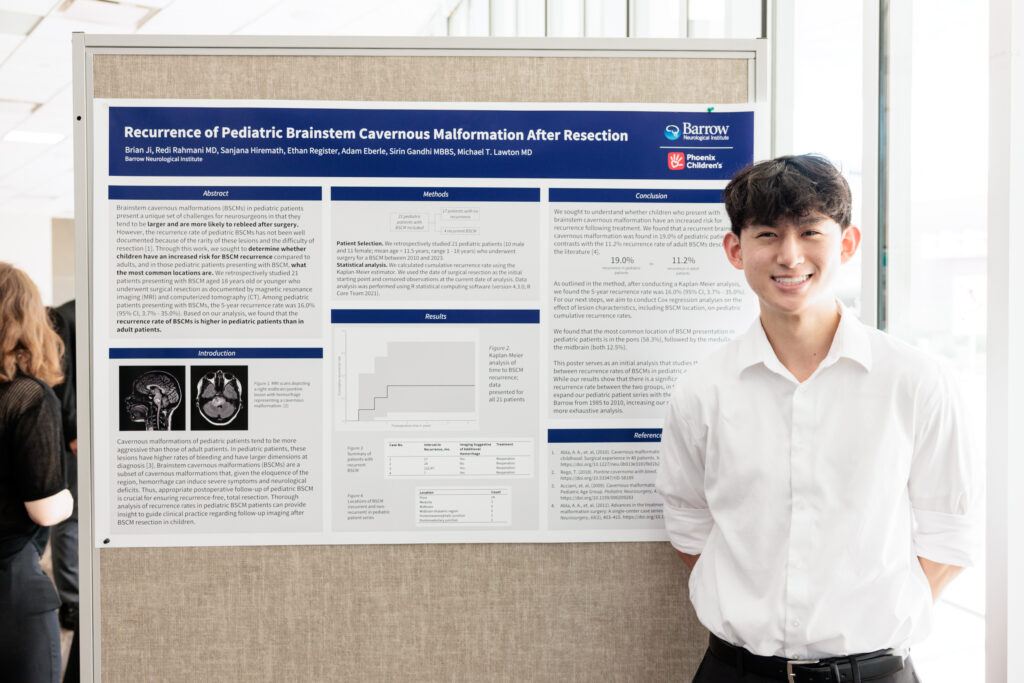
Internships are available in basic science, communications, philanthropy, and disease-relevant neuroscience areas, including, but not exclusive to:
Translational Neuroscience Research Laboratories
A very unique opportunity to the young and upcoming generation of neuroscientists to participate in cutting-edge disease and patient-relevant translational research in areas such as:
- Alzheimer’s disease, frontotemporal dementia, Lewy body dementias
- Amyotrophic lateral sclerosis (ALS)
- Parkinson’s disease
- Brain tumors and neuro-oncology
- Neuroinflammation
- Neurotrauma
- Stroke
- Brain Aneurysm and related vascular brain disorders
Barrow Neuroimaging Innovation Center
The mission of the Barrow Neuroimaging Innovation Center is to transform patient care through innovative neuroimaging solutions. The center aims to apply these solutions to all major neurological conditions treated at Barrow. These include brain tumors, amyotrophic lateral sclerosis (ALS), multiple sclerosis (MS), Alzheimer’s disease, Parkinson’s disease, traumatic brain injury, neuropathies and nerve trauma, spinal cord disorders, and neurovascular disorders.
Sonntag Spine Center
The Sonntag Spine Center at Barrow Neurological Institute is dedicated to advancing the treatment of spinal conditions through collaborative research, trailblazing innovation, and global education.
The Spinal Biomechanics Laboratory studies the mechanical behavior of the spine in its normal condition and after injury, disease, or surgical intervention. Spinal biomechanics researchers work closely with clinical neurosurgeons in the Department of Neurosurgery.
The Spine Virtual Reality Laboratory in the Sonntag Spine Center was established by surgeons for surgeons to allow neurosurgery residents and attendings to design and test innovative surgical training in virtual reality (VR) and mixed reality. We maintain a tight feedback loop between the personnel creating the experience and the surgeons who use the experience to practice and learn.
Neuro-Rehabilitation Center
Our Neuro-Rehabilitation Center and outpatient neuro-rehabilitation focuses on helping people who have experienced complex brain and spinal cord disease, injuries, and conditions return to normal functioning or regain as much function as possible. As Barrow is a leader in the use of neuro-rehabilitation robotics and advanced technologies, you will see how we use these devices to help with therapeutic interventions to support and challenge a patient’s abilities to meet their rehabilitation goals. You will get the opportunity to assist therapists using these devices with patients in a hands-on environment while working in the rehabilitation technician role.
In addition, we offer positions with our team of speech pathologists. This group supports patients who have acquired new swallowing, language, and cognitive disorders during their hospitalization. The team uses advanced imaging technology to assess swallow physiology with the aid of specialized speech pathologists who play a critical role in awake language mapping for patients with brain tumors.
Neuroscience Publications
The Neuroscience Publications Department leads the academic publishing industry in author services focused entirely on the neurosciences. Our author services include a wide range of projects managed by highly qualified personnel with extensive experience in their fields of expertise: animation, editorial, graphics, illustration, video, and interactive 3D-models.

Innovation Center
Considering the critical importance of innovation to the advancement of neurosurgery, and a surprising lack of formal training in innovation among residency programs, Barrow created a residency training program in neurosurgical innovation—The Barrow Innovation Center. The center comprises a rapid prototyping laboratory with 3D printers and several collaborative partnerships between neurosurgery residents, patent law students, and biomedical engineering students.
Marketing
The Marketing Department at Barrow offers students a broad exposure to all facets of healthcare marketing. From content creation and strategy to analytics and measurement, the marketing team strives to tell the Barrow story in a way that informs and educates prospective patients.
Barrow Foundation
Philanthropy plays a key role in advancing healthcare. At Barrow, philanthropy focuses on three main pillars of support: patient care, research, and education through comprehensive fundraising efforts that include major gifts, corporate partnerships, foundations, annual fund donors, employee giving, and events.
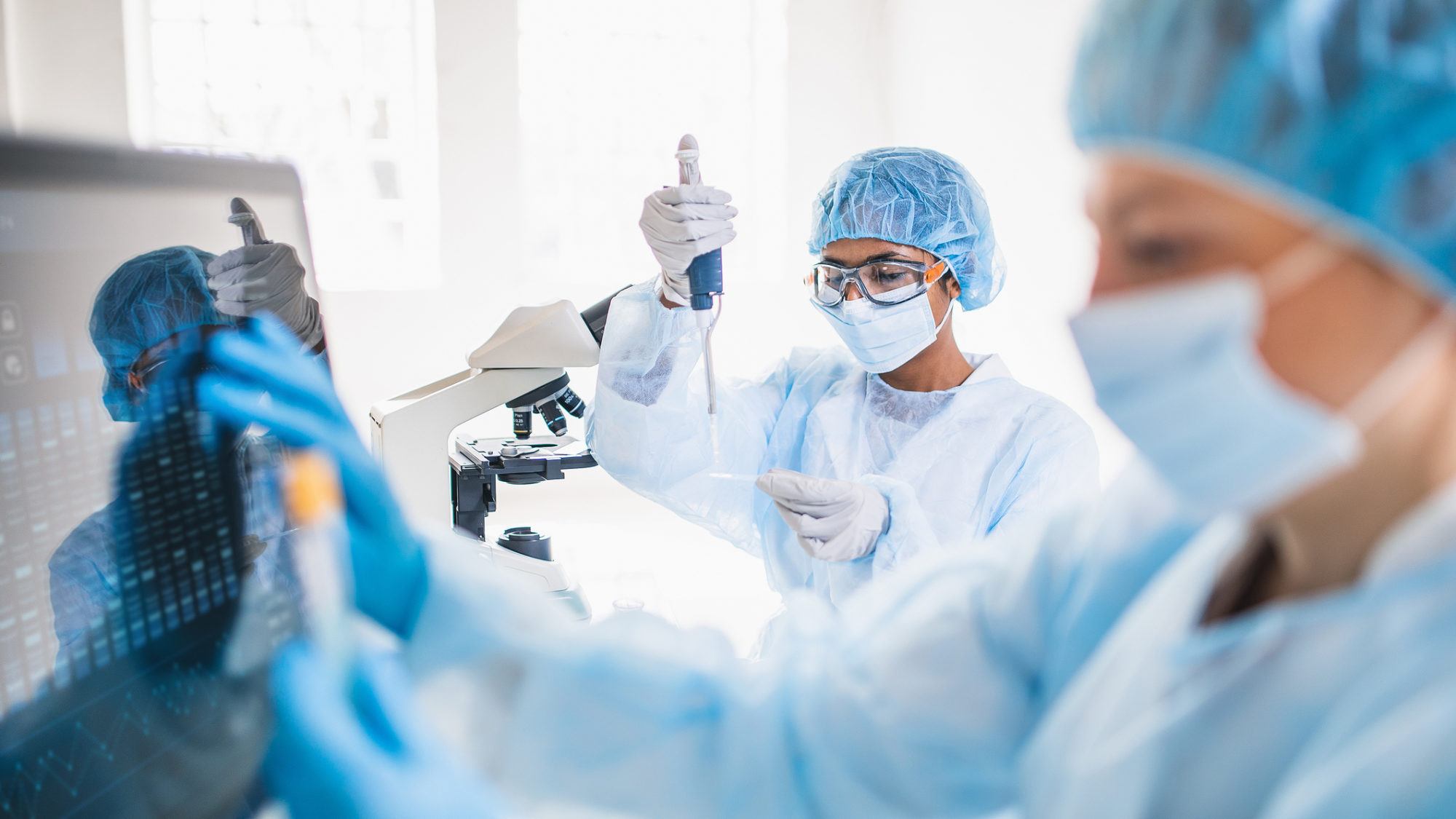
In addition to gaining hands on laboratory research experience, interns attend weekly research seminars, learn about career options in scientific fields, and present their research at the annual Barrow summer intern research symposium, either as an oral presentation or a scientific poster.
Interns from previous years have been able to use this internship to gain co-authorships on scientific abstracts and manuscripts, enrich their graduate and medical school applications, and foster scientific collaborations and friendships throughout their future careers.
Apply Online
Application Checklist
You will need the following information when filling out your application. Please note that applications cannot be saved while in progress, so it is important that you have all of these items available before beginning the application process.
- Demographic information
- Employment eligibility
- Educational background, including overall GPA, science and math GPA, and expected graduation date
- A brief personal statement describing yourself, your career goals, your research interests, and your expectations of the program
- A brief description of any previous laboratory experience related to your desired field of work, if applicable
- A complete list of all collegiate classes taken that pertain to your desired field of work, including honors designation, grade achieved, the semester and year when the course was taken, and in the institution at which you completed the course
- One letter of recommendation from a professional mentor

